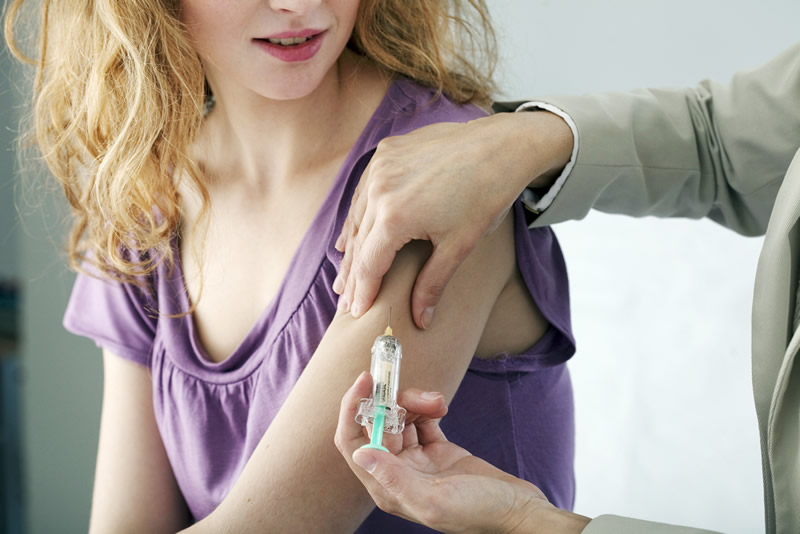U-M partners with nation’s top cancer centers to endorse goal of eliminating HPV-related cancers
Media contact: Nicole Fawcett, 734-764-2220 | Patients may contact Cancer AnswerLine, 800-865-1125
Joint statement empowers parents, young adults, physicians to increase vaccinations, screenings for HPV-related cancers
ANN ARBOR, Michigan — Nearly 80 million Americans – one out of every four people – are infected with human papillomavirus (HPV). And of those, more than 31,000 will be diagnosed with an HPV-related cancer this year.

Despite those staggering figures and the availability of a vaccine to prevent the infections that cause these cancers, HPV vaccination remains low in the United States.
The University of Michigan Rogel Cancer Center has partnered with 69 other National Cancer Institute-designated cancer centers to issue a statement urging for increased HPV vaccination and screening to eliminate HPV-related cancers, starting with cervical cancer. These institutions collectively recognize insufficient vaccination as a public health threat and call upon the nation’s physicians, parents and young adults to take advantage of this rare opportunity to eliminate several different types of cancer in men and women.
“HPV is a major contributor to several cancers – and we have the means to virtually eliminate these cancers through HPV vaccination. By encouraging HPV vaccination, we can have a big impact on reducing the burden of cancer and improving quality of life for people at risk,” says Eric Fearon, M.D., Ph.D., director of the Rogel Cancer Center.
The joint statement asks health care providers to recommend the HPV vaccine and parents to ask their doctors about vaccination.
Vaccination rates remain significantly lower than other recommended adolescent vaccines in the United States. According to 2016 data from the Centers for Disease Control, fewer than 50 percent of girls and 38 percent of boys completed the recommended vaccine series. Research shows there are a number of barriers to improving vaccination rates, including a lack of strong recommendations from physicians, and parents not understanding that this vaccine protects against several types of cancer in men and women.
HPV causes multiple cancers, including cervical, anal, oropharyngeal (middle throat) and other genital cancers.
HPV experts from the nation’s top cancer centers, along with partners from the NCI, CDC, American Cancer Society and other advocacy groups, are meeting June 7-8 in Salt Lake City to discuss a path forward to eliminating cancers caused by HPV, including ways to reduce barriers to vaccination, as well as share education, training and intervention strategies to improve vaccination rates.
“The HPV vaccines work for many ages. We encourage those older than 15 to consider the protection these vaccines provide as well,” says Diane Harper, M.D., MPH, M.S., physician director for community outreach and engagement at the Rogel Cancer Center.
This is the third year that all NCI-designated cancer centers have come together to issue a national call to action. All 70 cancer centers unanimously share the goal of sending a powerful message to parents, adolescents and health care providers about the importance of HPV vaccination for the elimination of HPV-related cancers.
